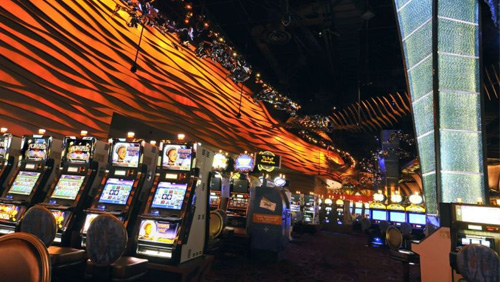Bridgeport casino proponents vowed to return to Connecticut’s state capitol next year and prod lawmakers to pass a bill that would allow casino operators to compete in an open license bidding process.
 The Hartford Courant reported that the casino backers have already resumed their campaign to approve a $675 million MGM Resorts casino on the Bridgeport waterfront just a week after the state senate decided to shelve the bill.
The Hartford Courant reported that the casino backers have already resumed their campaign to approve a $675 million MGM Resorts casino on the Bridgeport waterfront just a week after the state senate decided to shelve the bill.
Bridgeport Mayor Joseph Ganim led lawmakers and Bridgeport casino supporters in a gathering at the Bridgeport Landing Development office on Tuesday as they celebrated their ‘win’ in the General Assembly, even though they failed to muster enough support in the Senate.
Ganim, a candidate for the Democratic nomination for governor, said their victory in the lower chamber was huge since it is the first time in 25 years that any piece of gaming legislation has gotten out of the House chamber.
“And the next step is to clear the Senate and then get it signed,” Ganim said, according to the news outlet.
Bridgeport Democrat Rep. Christopher Rosario, who lobbied hard for the Assembly to pass the bill, admitted that “it was a bit of a long shot” when they filed the legislation. State Rep. Steven Stafstrom also reaffirmed his commitment to fight for the casino project.
Stafstrom believes that Connecticut needs an “open, transparent and honest process and discussion” on casino gambling, saying, “If we’re going to open casinos off of tribal lands, then that conversation must be had in public.”
The Mohegan and Mashantucket Pequot tribes, operators of Mohegan Sun and Foxwoods Resort Casino, have repeatedly argued that they have the exclusive right to operate gaming machines in Connecticut in exchange for a sharing portion of their slot machine revenues with the state.
In 2017, the tribes announced plans to build a $300 million casino in East Windsor to siphon off gambling dollars that might go to MGM Springfield, which is located just across the Massachusetts border. However, their East Windsor project has faced delays after the U.S. Department of the Interior sat on their request to approve a revised tribal-state gaming compact.
While waiting for their permits, the two tribes are reportedly eyeing a piece of the Japanese casino market. Representatives of the tribal groups were present at the Japan Gaming Conference in Tokyo on Friday and both expressed their intention to compete for one of three (or possibly five) casino licenses in the Asian country.